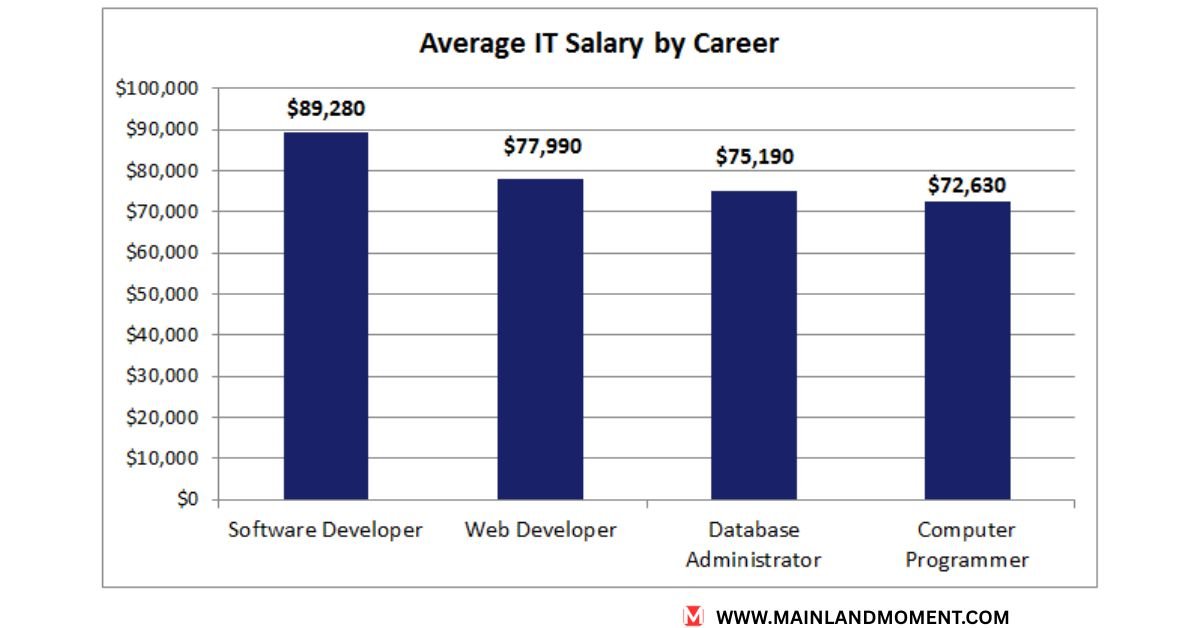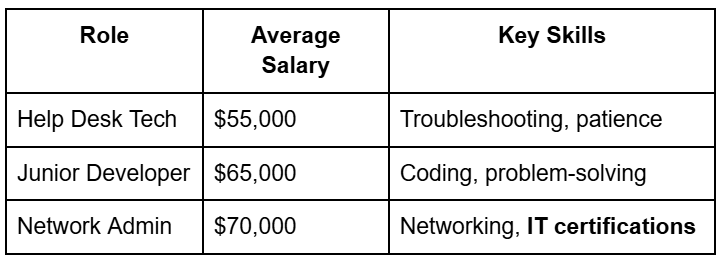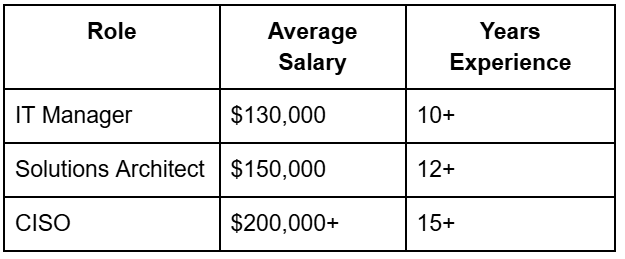Is Information Technology a Good Career? Your Guide to a Thriving IT Future

Wondering if an information technology degree could unlock a dream job? You are not alone. In 2025, the tech world buzzes with opportunity, and an IT career path promises more than just a paycheck it is a ticket to shape the future. Whether you’re eyeing a bachelor’s degree in IT or curious about high-paying IT jobs, this post digs into why IT shines as a career choice.
Let’s explore the diversity, growth, and cold, hard cash that make it tick.
Why Is Information Technology a Good Career?

You are solving puzzles that power the world apps, networks, even AI breakthroughs. That’s IT in a nutshell. An IT career path isn’t just a job it is a front-row seat to the digital age. The IT industry trends show no signs of slowing think self-driving cars or smart cities. Why does this matter to you? Because it means technology career opportunities are everywhere, and they’re real.
The U.S. Bureau of Labor Statistics (BLS) pegs IT as a goldmine, with a projected 15% growth rate through 2032. Compare that to the measly 3% for all jobs combined. Whether you’re a newbie or a seasoned pro, an information technology degree opens doors. Let’s break down the big reasons IT rocks.
Career Diversity

One day you are coding a game-changing app the next, you are thwarting hackers as a cybersecurity expert. That’s the beauty of specialized IT professionals. The field’s a playground of roles software engineers, network administrators, even cloud architects. Love data? Dive into analytics. Obsessed with gaming? Build virtual worlds.
Take Sarah, a 28-year-old from Austin. She started as a gamer, earned an IT degree, and now designs VR experiences for a living. The computer and information systems space bends to your passions. With IT certifications like AWS or Cisco under your belt, you can pivot anywhere. Boredom? Not here.
Job Growth
Growth in IT isn’t a hunch it is a fact. The BLS forecasts 557,000 new tech jobs by 2032, fueled by IT job growth in AI, cloud computing, and 5G. Cybersecurity alone could need 3.5 million more pros by 2026, says Cybersecurity Ventures. Why? Businesses can’t function without IT infrastructure.
For example, the rise of remote work has companies scrambling for in-demand IT jobs like cloud engineers. The IT workforce expansion is not slowing think of it as a rocket blasting off, and you can hop on. A bachelor’s degree in IT or even a quick IT certification gets you in the game.
In-Demand Jobs
On-demand IT jobs like cybersecurity analysts, DevOps engineers, and machine learning specialists top the charts. Check LinkedIn thousands of postings beg for IT specialists. These roles are not just trendy; they solve real problems. A cybersecurity pro stops data breaches costing billions yearly.
Here’s a quick list of sought-after tech jobs:
- Cybersecurity Analyst: Protects against hacks.
- Cloud Engineer: Builds scalable systems.
- Data Scientist: Turns numbers into gold.
The tech job demand is fierce companies like Google and Amazon can’t hire fast enough. An IT profession here means you’re always needed.
High-Paying Careers
High-paying IT jobs deliver big. Entry-level? You’re at $60,000. Senior roles like IT directors? Try $150,000+. The IT salary expectations scale with skill. Glassdoor shows a software engineer averaging $110,000, while a chief information officer (CIO) might hit $200,000 with bonuses.
Compare that to teaching ($50,000) or retail management ($45,000). IT’s a gold mine the deeper you dig with a software engineering degree or experience, the richer it gets. Lucrative tech careers aren’t a myth; they’re your next paycheck.
What Is the Average Information Technology Degree Salary?

An information technology degree isn’t just a piece of paper it is a paycheck booster. Salaries vary by role, experience, and location, but the IT pay scale trends upward. Payscale and BLS data give us the scoop. Let’s slice it up by career stage so you know what to expect.
Entry-level IT Jobs
Just starting? IT income for newbies ranges from $50,000 to $70,000. A help desk tech might pull $55,000, while a junior developer in a tech hub like San Francisco hits $75,000. Location tweaks the numbers rural gigs pay less, urban ones more.

Pro tip: Grab a tech certification like CompTIA A+ to jump from $50,000 to $60,000 overnight. Entry-level IT employment is your launchpad.
Mid-Level IT Jobs
Five years in, and you’re rolling. Mid-level IT jobs like systems analysts or IT project managers snag $80,000 to $100,000. A cloud engineer at a mid-sized firm might land $95,000, juggling cloud computing systems remotely. Experience plus a tech bachelor’s degree pays off here.
Consider this case study: Jake, a 32-year-old from Chicago, started as a help desk tech. With a bachelor’s degree in IT and some hustle, he’s now an IT manager at $98,000. Skills stack up add IT credentials like PMP, and you’re golden.
Senior-Level IT Jobs
Senior-level IT jobs think IT managers, architects, or CISOs command $120,000 to $200,000+. A CIO at a Fortune 500 firm could even crack $300,000 with bonuses. It’s not luck; it’s years of grinding plus strategic chops.
Here’s a table of high-income IT careers:

Frequently Asked Questions (FAQs)
What Is the Highest-Paying IT Degree?
Cybersecurity and software engineering degrees, top the list think $130,000+ for seasoned pros. Why? IT hiring trends show hacks costing companies $4.45 million per breach (IBM, 2023). A digital technology degree here is your golden ticket.
Is Information Technology Still a Good Career?
Future IT jobs like AI and quantum computing keep the IT employment growth roaring. BLS says 15% growth through 2032 tech is not fading anytime soon.
What Are the Pros and Cons of Being an IT Technician?
Pros: Decent pay ($55,000+), solving cool problems.
Cons: On-call stress, repetitive tickets. It’s freedom versus the grind your call.
What Type of IT Degree Is Best?
A computer science degree rocks for theory; an information systems degree nails practical skills. Cybersecurity’s hot for stability, data science for well-paid IT roles. Match it to your vibe.
Which Is Better, Computer Science or IT?
CS builds the tech think algorithms. IT runs it think networks. Want deep theory? CS. Love hands-on? IT. Both offer top-paying tech jobs, but IT’s quicker to start with a professional IT course.
Wrapping It Up
An IT career path is not just good, it is electric. From IT job opportunities to rising tech careers, the field’s a buffet of options. Whether you are chasing a software development degree or eyeing IT consultants, the stats don’t lie growth, demand, and dollars are on your side. Ready to jump in? The tech job market waits for no one grab your spot.






